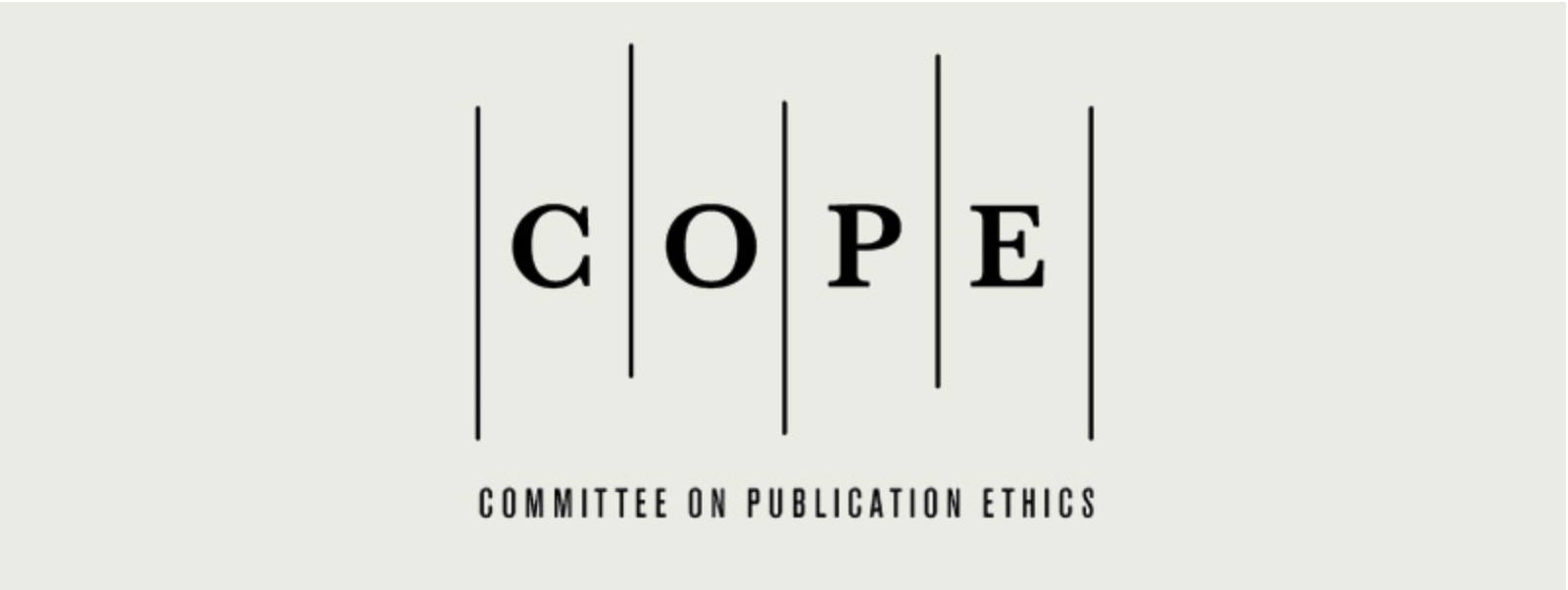Ethics and good editorial practices
The AMIDI.Biblioteca is a subscriber to the code of ethics guiding the procedures and behavior of all parties involved in the publication of this journal (members of the editorial team, editors, editorial committee, authors, and peer reviewers), as established by the Committee on Publication Ethics (COPE), available at publicationethics.org.

Authors’ responsibility
- Authors pledge to submit original, unpublished papers that are not currently under a review processes by another journal. To this end, they avow that their papers have not been previously published and are not under review by another journal. Submission of the same or a substantially similar manuscript to more than one journal at a time constitutes unethical behavior and such papers will be rejected.
- Our editors will judge that an article has been previously published if the complete text or substantial passages from the text have been published in any language in hard copy or electronic format. Authors should refrain from publishing manuscripts that essentially describe the same research in more than one primary journal or publication.
- Authors should guarantee that their manuscripts are products of their original work and that data have been obtained ethically.
- Authors should follow the guidelines for publishing articles as defined by the Editorial Board.
- Authors should submit an exact description of the work undertaken, as well as an objective discussion of its importance. Underlying data should appear clearly within the article. False or deliberately inaccurate affirmations constitute unethical behavior and will not be accepted.
- If authors use sources or quotations of other parties, they must be duly cited. Plagiarism in all its forms is unacceptable and unethical conduct. Any manuscript that incurs in plagiarism will be rejected as unsuitable for publication.
- Authors should adequately cite publications that have been influential in the nature of the work. Information obtained through private channels, such as conversations, correspondence, or discussions with third parties, should not be used without obtaining written permission from the person who provided the information.
- Authorship should be limited to persons who have made a significant contribution to the conception, design, implementation, or interpretation of the study. Given the nature of the papers pertaining to the fields of interest covered by this journal, contributions will not be accepted if submitted by more than three authors. The principal author(s) should ensure that all authors are mentioned in the article, that all have seen and approved the final version of the document, and are in agreement on its submission for publication.
- Sources of financial support for the study should be indicated in a footnote.
- Should an author find an error or significant inaccuracy in the published article, it is his/her obligation to notify the editor(s) of the journal immediately and cooperate with them to retract or correct the manuscript.
- It is the author(s)’s responsibility that submitted texts comply with the journal’s formal publishing requirements as indicated herein or in other guideline documents.
- Papers will not be accepted in which the author cites in the bibliography more than three of his/her own publications or cites three references to articles published in the journal.
AMIDI.Biblioteca believes it is important to use inclusive, non-sexist, and non-discriminatory language as a proactive measure aimed at achieving gender mainstreaming. We urge authors to consider this type of language in their texts. We recommend consulting manuals on inclusive language procedures. Some very basic recommendations are:
- Avoid using the masculine as the only referent or implying that the feminine gender is subordinate to the masculine
- Use data disaggregated by gender.
- Use universal generic terms, such as “people” or “staff”.
Responsibility of the editors
- Editors are those persons who are on the Editorial Board or participate in the management and technical preparation of the journal.
- Editors are responsible for all published content of the journal and should endeavor to satisfy the needs of readers and authors, constantly improve the journal, and ensure the quality of published material. The editor is willing to publish corrections, clarifications, retractions, and apologies when the need arises.
- Editors’ decisions to accept or reject a paper for publication should be based exclusively on the importance, originality, clarity, and relevance of the paper for the journal.
- Editors should guarantee the confidentiality of the review process, refrain from revealing authors’ identity to the reviewers, or reveal the identity of reviewers.
- Editors are responsible for deciding what articles can be accepted and will make a final decision regarding the articles to be published.
- Editors assume responsibility for duly notifying authors regarding where the submitted material stands in the review process, as well as the decisions reached by the reviewers.
- Editors will evaluate manuscripts and their content without regard to authors’ race, gender, sexual orientation, religious beliefs, ethnic origin, nationality, or political beliefs.
- Editors will refrain from releasing any information regarding a submitted manuscript to anyone other than the author, reviewers, or editorial advisors.Opinions expressed by the authors do not necessarily reflect editors’ positions.
- Articles will not be published if plagiarism or any type of copyright infringement is found that contravenes established guidelines. For this purpose, journal editors reserve the right to use anti-plagiarism software.
- Articles will not be published if they cover, even circumstantially, matters such as personal criticism, discriminatory attitudes, ideological tendencies, party affiliation, or promote any value counter to those outlined as desirable in guideline documents published by the AMIDI.Biblioteca digital repository.
Responsibilities of reviewers
- Reviews commit to notify the journal of any unethical behavior on the part of authors and to flag any information that might involve reasons sufficient to reject articles. They also commit to maintain confidentiality regarding any information revealed by the articles under review.
- In reviewing articles, reviewers should be familiar with journal guidelines in this regard, provided by the editorial team.
- Reviewers selected should notify the editor as soon as possible if they feel qualified (or not) to participate in the review process of a particular article.
- Any manuscript received for review should be handled confidentially and should not be shown or discussed with anyone.
- Reviews should judge objectively and express their viewpoints clearly and with valid arguments. Any personal criticism of the author is inadmissible. Reviewers should refrain from evaluating manuscripts if doing so would involve a conflict of interest.
- All information obtained through the peer-review process should be handled as confidential and should never be used for personal gain.






